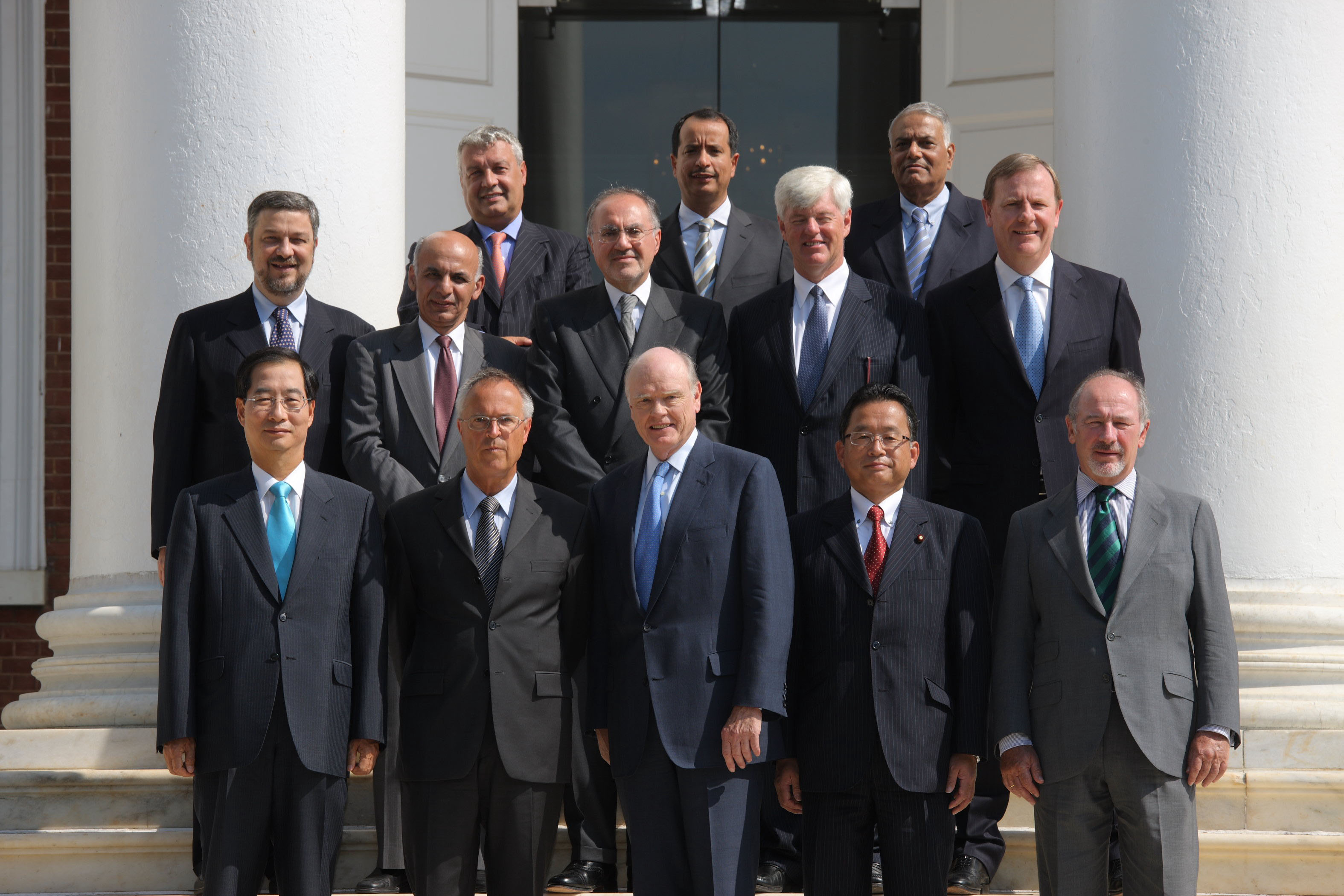Sept. 10, 2008 -- As the world focused this week on the U.S. government takeover of home mortgage titans Fannie Mae and Freddie Mac, attention also turned to the University of Virginia, where 13 former finance ministers from around the world gathered to assess and suggest solutions for global financial challenges.
Convened by former U.S. Treasury Secretary John Snow, "The New Financial Architecture: A Global Summit" was hosted by U.Va.'s Miller Center of Public Affairs. Among the issues on the table were the ramifications of the Fannie Mae and Freddie Mac bailout, the global financial architecture, the far-ranging effects of the subprime crisis and credit crunch, and the financial institutions of the future.
"What we did was to focus on the large important questions of the global economy," Snow said. "How do we sustain growth? How do we deal with the financial crisis?"
The two-day summit attracted major media, including National Public Radio and Bloomberg News, along with local TV and newspaper coverage. Media partners CNBC and the Wall Street Journal provided journalists to moderate some of the panel discussions, and CNBC featured live broadcasts from Grounds on both days.
"We were thrilled that these distinguished former officials could join us here to discuss these important issues," said Lisa Todorovich, communications director for the Miller Center. "Bringing these people together to offer frank opinions and suggestions -- particularly about financial governance during the Freddie Mac/Fannie Mae bailout -- was a historic and timely opportunity."
After two days of debate and discussion — interspersed with the type of candid insights that senior officials are much more likely to share once they are no longer in office -- the finance ministers from Europe, Asia, South America and the Middle East issued a statement recommending four new policy approaches for the global economy in the future.
The United States needs to fix its "broken financial system," said the delegates, by developing regulations that apply uniformly to the whole spectrum of deposit-holding institutions, from traditional banks and savings and loans to the less-regulated hedge funds and mortgage originators.
Those institutions were able to take greater risks than banks, issuing and selling unsound loans. Losses from faulty subprime loans have spread to companies around the world, providing a clear demonstration of how interconnected today's global financial markets are.
"For such a long period of time, the U.S. was a force for stability in world markets," said Peter Costello of Australia in an interview with NPR. "Here's an example of the U.S. exporting instability."
Regulators are always playing catch-up in response to private sector innovations like hedge funds, but they should strive to "be one step behind, but not miles behind," Yuji Yamamoto, Japan's former finance minister, said through a translator.
International institutions, like the International Monetary Fund and World Bank, must manage the risks that inevitably accompany healthy private sector innovation. "As a practical matter, mistakes are going to be made," said Snow, who is currently chairman of Cerberus Capital Management, one of the world's leading private investment firms, and a visiting fellow at the Miller Center.
"The larger question is how do we organize the incentives so that prosperity continues, jobs are created, growth is created, and the financial sector innovates and creates products that help achieve those objectives. That comes back, in the end, to managing risks."
Enhanced global institutions should include rising powers like Brazil, China and India, noted the delegates, who proposed creating a "G-next" to replace the traditional G-8 group of leading economic powers.
The ministers stressed that any reforms should not undermine the fundamental principles that have sustained the unprecedented global economic growth of the past 20 years: In Snow's words, "Reliance on market forces, reliance on trade and reliance on global capital flows that enabled the world to enjoy the greatest prosperity it's ever known."
The recommendations noted the importance of sustainable growth in the future, as growing populations and wealth create unprecedented demand for food and energy, increasing the general impact on the environment.
The Miller Center will publish more extensive recommendations in October, before the IMF and World Bank meetings. Full video of the conference will be available on the Miller Center Web site next week.
-- By Brevy Cannon
Media Contact
Article Information
September 11, 2008
/content/global-finance-summit-draws-lessons-fannie-freddie-bailout

